
By Jae-Ha Kim
Teen Vogue
April 18, 2022
Without a doubt, Pachinko is an ambitious series. Its international cast includes Korean stars Lee Minho (The Heirs) and Academy Award winner Yuh-Jung Youn (Minari), Korean American actor Jin Ha (Devs), and Korean Japanese actor Soji Arai (Angels in America). More than two-thirds of the dialogue is in either Korean or Japanese (with yellow and blue subtitles, respectively). Pachinko is gorgeously filmed and beautifully acted.
Outlets like the Los Angeles Times describe it as “stunning” and being “so good it makes the competition look bad.” A CNN reviewer promises that Pachinko is “a sweeping family saga that earns your tears.” And based on 52 critics’ reviews, it received a 9.2/10 rating on Rotten Tomatoes. It’s the kind of series that screams Emmy nominations.
So why am I so ambivalent about this extravaganza that critics are almost universally raving about? Truth be told, I feel almost guilty for not being 100 percent in love with this Apple TV+ series, which runs through April 29. Asian Americans – much less Korean Americans – have had almost no representation in the arts until recent years. And here’s this series, which is spearheaded by Korean American showrunner Soo Hugh, whose source material is the bestselling novel of the same name by Korean American author Min Jin Lee. It’s a time to celebrate Korean American creativity, right?
But to paraphrase the late Roger Ebert’s review of Memoirs of a Geisha: The more you know about Lee’s novel, the less you will appreciate this series – not because it isn’t a word-for-word reenactment of her storytelling (televised adaptations rarely are), but because you know how great it could’ve been if the creatives opted for a more linear storyline.
Lee’s Pachinko – one of The New York Times’ 10 Best Books of 2017, a National Book Award finalist, and also a favorite of former president Barack Obama – is a 485-page historical epic that seamlessly spans four generations and three countries (Korea, Japan, the United States) throughout most of the 20th century. It introduces readers to the plight of Zainichi (Koreans who immigrated to Japan during colonial rule and their descendants). Lee’s storytelling is as meticulous as it is engaging.
When Apple TV+ announced it had bought the rights to produce a series based on the novel, Lee was on board as one of the executive producers. But for reasons that neither the streaming site nor the author publicly disclosed, Lee and the production team parted ways. After watching screenings of the entire series (twice!), it’s not out of the question to speculate that Lee departed due to creative differences. Because while the adaptation tackles some of the themes explored in the novel, it also erases integral plot points. (More on that later.)
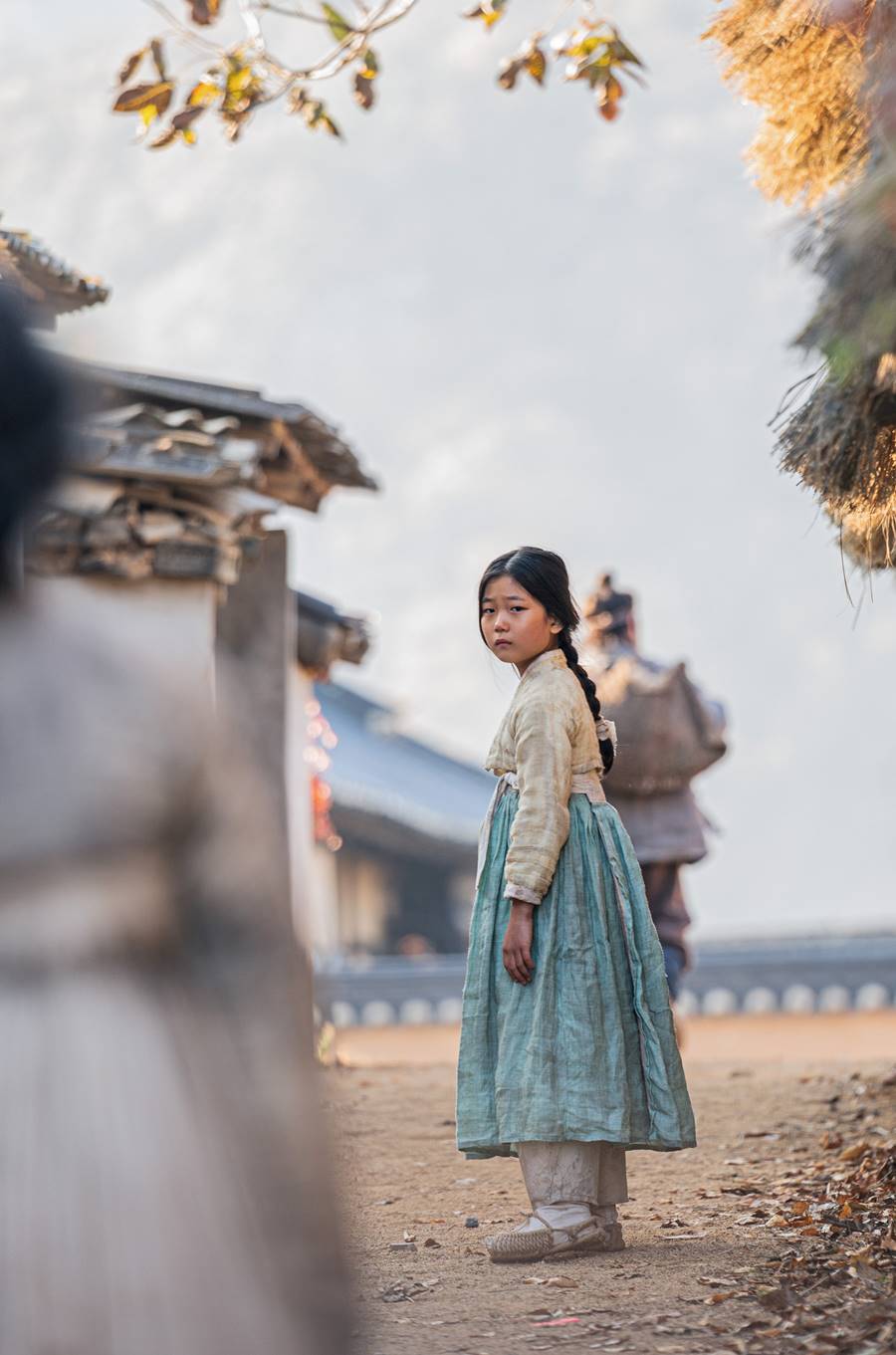
Let’s Live for Today
The series’ joyous opening montage features all the central characters dancing in a brightly lit pachinko parlor while the Grass Roots’ anthemic “Let’s Live for Today” plays. It’s such an effervescent, memorable, and attention-grabbing sequence that it takes a moment to realize that the song selection is an odd choice for Pachinko. The lyrics to this de facto theme song are subversively jarring. “Sha la la la la la, live for today / And don’t worry ’bout tomorrow” contradicts Pachinko‘s thesis. The goal for three of the four generations depicted in this series is to work hard and endure so their children won’t have to suffer. They don’t have the luxury of living for today. They need to focus on the future. And the one character who does throw away their family to live for today dies a horrific and painful death from AIDS.
Later, this song is beautifully reworked in Korean by the pansori pop band Leenalchi, who add a hypnotic and more appropriately mournful twist to the familiar tune.
Pachinko is a visually-stunning series fueled by first-rate performances from its stars and the direction of filmmakers Kogonada (After Yang) and Justin Chon (Blue Bayou), who each tackle four episodes. The show excels when it focuses on the early 1900s, depicting Koreans being treated as second class citizens in a country that others have claimed as their own. But the drama’s weakest point lies in the rush to get these stories told via parallel decades, switching from one era to another just as viewers are comprehending what we have seen. After three minutes of a glorious start, the story loses momentum when it flashes forward to 1989 – a time when Japan’s booming economy benefited its people … except for Zainichi descendants like banker Solomon. The swaggering Jin Ha – who recently issued an apology for posting photos that mocked elderly Korean women – takes charge of a role that’s as likable as not. Treated as a foreigner in the United States, where he was educated and employed, he goes back to his birth country of Japan, where he is considered less than because of his Korean ethnicity. Solomon’s goal is to close a difficult deal that would prove to his racist American bosses that he deserves to be promoted.
Focusing on Solomon’s story for one episode would’ve been OK. But to devote so much of the series on one of the least interesting characters feels like wasted energy.
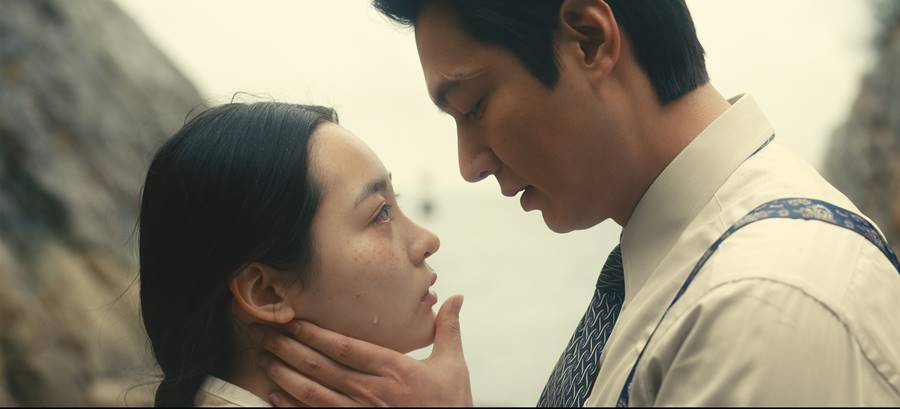
More Sunja, Less Solomon
Solomon’s story is paired with that of his grandmother Sunja, who is the series protagonist. She is the only surviving child of a couple who were brought together because of their misfortunes. Her mother was the fourth daughter of a poverty-stricken man who could provide no dowry. Sunja’s father had a cleft lip and a twisted foot and was therefore considered not only unmarriable, but more cruelly as a 병신/byeongshin – a cruel pejorative for mentally disabled people. He wanted Sunja to go to school and learn to read and write, but her mother discouraged it. Why create hope in a girl of her lowly background, she reasons. When Sunja later moves to Japan, she will rely on her bilingual seven-year-old son to interpret for her. Sunja is played as a child and teenager by newcomers Jeon Yu-na and Minha Kim, respectively. And veteran actress Yuh-Jung Youn tackles the portrayal of Sunja as an elderly woman.
Minha Kim is a revelation in her portrayal of Sunja from mid-teens through her 20s. She has a magnetic presence on screen whether she’s falling in love with a rakish older man (Lee Minho’s wealthy fish broker, Hansu) or standing up to loan sharks who threaten her extended family’s livelihood. Her Sunja is smart but uneducated, beautiful but ordinary. And anytime she appears on screen, your eyes are riveted to her.
Kim conveys the nervous excitement of a young girl who allows herself to hope for love. And Lee is suavely convincing as a man who is genuinely happy when Sunja gets pregnant – hoping she’ll give him the son he doesn’t have. Unbeknownst to Sunja, he already has a Japanese wife and daughters who he will not abandon. But he won’t desert Sunja and their baby, either, he says. Sunja is disgusted at his suggestion to become his mistress. When she refuses his offer, he cruelly accuses her of trying to entrap him.
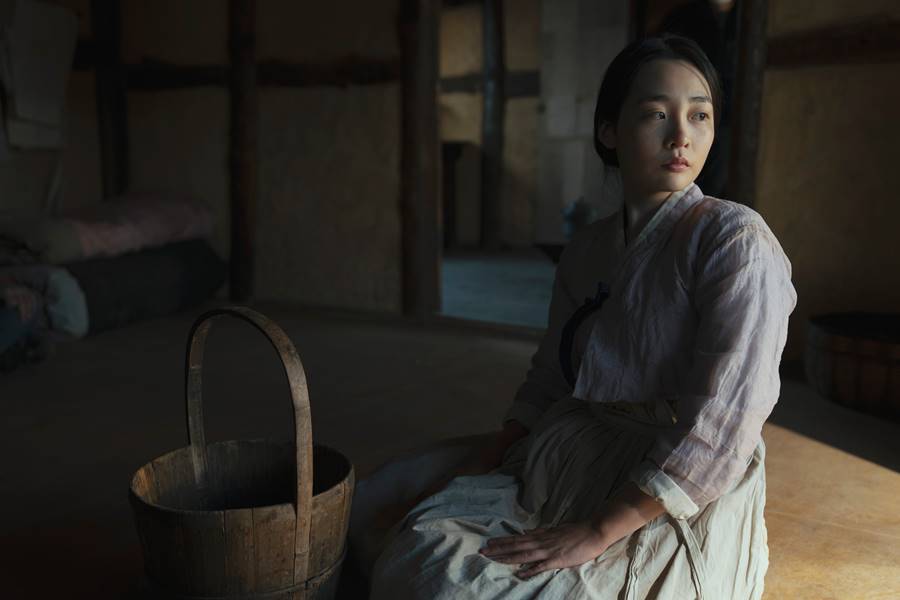
Removal of Integral Plot Points
The specter of Hansu remains throughout, as he manipulates Sunja’s life, as well as her family’s. But the more engrossing relationship is that of Sunja and Isak (Steve Sanghyun Noh), a pastor who marries her because he knows her life as an unwed mother will have severe repercussions. Isak’s actions start off as a selfless sacrifice that grows into true love. Isak and Sunja share some of the show’s most powerful scenes together. Regrettably, their story isn’t fully realized. Isak is imprisoned for orchestrating unpatriotic actions against the Japanese and disappears.
Though it isn’t necessary for a televised adaptation to be faithful to the narrative of the book it’s based on, this is an unfortunate deviation from the novel, where Isak is imprisoned for his Christianity. The series does everything to set up Isak as a man of faith. This sudden political activism rings false. It isn’t believable that this devoted husband – who loves his wife and reveres his elder brother – had a secret political life he didn’t disclose to his wife or his hyung.
There’s also a prominent gay subplot in the book that’s completely ignored here. Given that this is a production spearheaded by Korean American creatives, rather than a K-drama that was produced in South Korea – where LGBTQ rights are sorely lacking – this could’ve been an opportune time to make a statement about the historic mistreatment of this marginalized community. Instead, the series includes a cop-out storyline that doesn’t address the character’s homosexuality. Rather, it presents Haruki as a penniless vagrant who abandoned his family. The one good moment in this vignette is seeing the cultural divide between the Americanized Solomon and a man who had once been his father’s best friend. Out of pity, Solomon tries to give Haruki cash. It doesn’t occur to him until it’s too late how condescending his actions come across to a Japanese elder.
But it’s not just the elements left out that do this series a disservice. It’s the additional parts written specifically for Pachinko that serve little purpose than to be overly dramatic. For instance, there’s a scene that shows Sunja and Isak in a ship’s filthy steerage headed for Osaka. Meanwhile, the Japanese elite are upstairs in the dining hall eating off of fine china. That evening’s entertainment is provided by a glamorous Korean singer whose beauty has given her a pass to sit with the wealthy. She revolts against the Japanese by singing in Korean. Before she can be arrested for treason, she stabs herself to death with a steak knife. This scene is meant to accentuate the animosity between the colonized Koreans and their Japanese overlords. But it does little to enhance the plot.
As he did with his film Blue Bayou, director Justin Chon chose to end Pachinko documentary style. Interviews with real-life elderly Zainichi women talking about their experiences are included. Their memories of lost childhoods and alienation are a touching and unique way to conclude the series. But there is no sense of closure for the characters we’ve grown close to for eight episodes. (The showrunner has said she envisions Pachinko as a multiple-season series, but Apple TV+ hasn’t confirmed its plans.)
The ending reminds me of an earlier scene when an elderly woman – who Solomon is trying to manipulate – says, “Tell me the truth. When old people talk about suffering, isn’t it tiresome?” He answers, “Isn’t that the point – to burden us?”
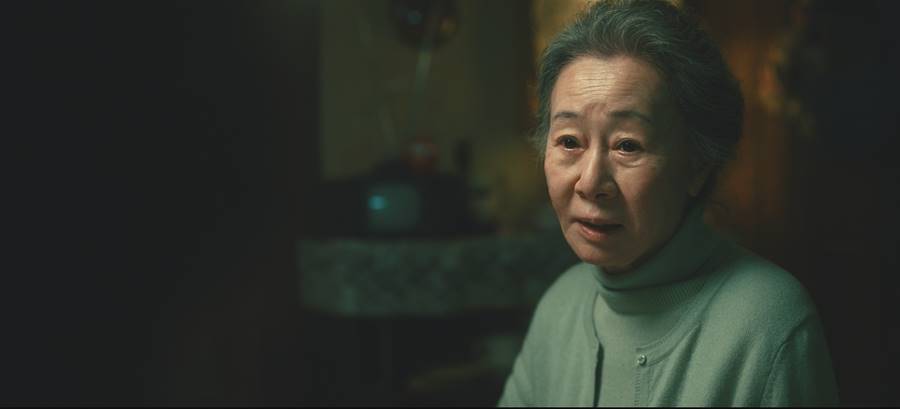
Ultimately, Pachinko is no more sweeping or epic than the 2018 K-drama Mr. Sunshine, which stars Kim Tae-ri (Twenty Five Twenty One) as a freedom fighter and Lee Byung-hun (Iris) as an American Marine who returns to his native Joseon. While Mr. Sunshine offers a more taut and intriguing storyline than Pachinko, it earned almost no U.S. press. (Rotten Tomatoes noted zero critics’ reviews on its aggregate.)
Of course Pachinko was released after the unparalleled success of Squid Game last year and likely benefited from the general public’s growing interest in Korean-centric dramas, subtitles be damned. But it could also be argued that Pachinko has a built-in audience of viewers who had high hopes that the series would match the excellence of Lee’s novel. When you adapt a book that’s as well read as Pachinko, the changes should create a more compelling and cohesive storyline. Despite the wonderful acting and gorgeous cinematography, this is what the series ultimately lacks.
© 2022 JAE-HA KIM | All Rights Reserved

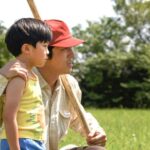




Yes!! I’m trying so hard to like the series, but am not loving the creative liberties taken in the transition to the screen… your review captures all these problems so well.
And side note: your comments about the opening song being an extremely odd choice for this series are EXACTLY what I thought of when it played the first time. I think the song, paired with the bright colors and dancing, might give the viewer the idea that these are frivolous people w/o a care in the world—when reality is quite the opposite. Even the pachinko parlor itself isn’t the bright bubbly place it’s depicted as in the opener; the scene where they’re adjusting the pegs is much more accurate
THIS! It is such an eye catching opening but it seems like a slap in the face to the actual story. I don’t expect them to have an opening that just shows misery and death but come on, this ain’t it!
A very thoughtful review.
The contrast to Mr Sunshine’s impact is important. I am reminded of the public outcry over its Korean Japanese Yakusa character as being too engaging/likeable, so the series had to end with his destruction.
The cinematic landscape is a different art form altogether. How the show runner was able to interweave the different generations was such a powerful tool to convey how intergenerational trauma works. It saddens me to read the commenters be influenced not to watch the show because it is truly a story we as Asian Americans, those part of the diaspora, have been waiting for such a triumphant story of representation to watch.
By the same token, Asian Americans…diaspora…shouldn’t be expected to like everything that tells a story about (some of) our lives.
Sideeying your need to tell a TV critic the difference between a book and a TV show.
Did you read her review or just her caption? Please don’t speak for all Asian Americans just because you liked this tepid series. I’m probably older than you, but this series is no better than Memoirs of a Geisha or Shogun which were both beautifully filmed but had so so plots. The time changes are jarring and the entire Solomon storyline is boring, no matter how much you and others are trying to force the notion that his drawn out storyline is important.
Wow. Speak for yourself. This is not the series I’ve waited for as an immigrant living in diaspora. I also didn’t like Crazy Rich Asians. To suggest that we have to support subpar work simply because Asians are behind it is insulting. I have watched six episodes so far and I guess I will power through the last two episodes. But if the reviews I read about the 7th episode are correct, it was fabricated to highlight LMH and isn’t worth watching other than because he’s handsome.
Your assumption is that people are stupid and will be swayed by one review. That’s the part that makes me sad. People will watch this series if they want to. One review isn’t going to change that. I read all the glowing reviews about this series and still have no interest in watching it. It looks like a fancy soap opera.
Pachinko is one of the best works of historical fiction I’ve ever read – that and Yaa Gyasi’s Homegoing are singular in how they’re able to capture generations of traumatic history with sweep and heft, but somehow manage to maintain the storytelling on a personal level throughout, so that the reader feels deeply connected to the main characters as individuals (a writerly feat nearly impossible to pull off). Given my love for the book, I was already on the fence about the show due to Mike Hale’s “meh” NYT review (did the show really change one of the novel’s villains to be a white dude? weird) – your review just might cinch it, sigh.
I really appreciate your trepidation, as well as your courage, in writing a less-than-glowing review amidst all the raves. As a Gen X Asian American, I’ve also waited a long time to see more of us in popular culture… however, if it’s just a lot of 2D characters/stories, I can’t get all that excited. Your criticism and your writing plays a crucial role in highlighting the multitudinous nature of our voices, because an essential element to how our stories can reach their most nuanced and humanized potential is in our speaking up when what we see doesn’t quite hit the mark. Thank you for continually expecting our stories and our art to reflect the fullest extent of who we are.
I haven’t read the book yet but I knew it had been a bestseller and highly regarded by book reviewers and the mainstream even. I was really looking forward to the series but I found it really boring and lost interest in finishing it. As an adoptee, I’m very interested in my birth culture. I really did want to like this show but there’s not enough there to keep my interest. One of my friends asked me if I felt guilty not liking it. Not at all. Why do I have to like everything about a show about Koreans? I asked her if she liked every show produced about Canadians and she laughed. She understood. Your review voiced a lot of my feelings about the show. Thank you for writing this!
I have such mixed feelings about this drama. Your article superbly addresses some of my same feelings..especially the jumping back and forth between time periods. This is so distracting and doesn’t do justice to the marvelous way the book developed the characters and the timeline.
I’m still enjoying the drama but it’s not all that I had expected.
Brilliant article by @GoAwayWithJae. This. Exactly. Why did we get more Isak than Sunja 🥲
Whoops, I meant Solomon* SORRY!
What a great review! So thorough. I’ll probably watch the series nonetheless – that history of the racist treatment of the Koreans by the Japanese needs to be more widely understood.
Jae-ha and I will probably have the same takes 9 times out of 10, but hoo boy not in this one. It just ain’t right. First off, ep 6 shows hints at the arrival of the gay plot line later, so it’s a bit premature to talk about erasure.
But that’s not my biggest complaint.
The singer in the ferry scene in Ep 4 is one of the most powerful vignettes of the show. It’s not right to dismiss it as “not advancing the plot.” The singer is based on a real person, and the depiction of the moment was jaw-dropping for people who are familiar with her.
The singer is Yun Sim-deok, Korea’s first Western style soprano. You can hear her singing here: https://youtu.be/QGeGn1uib_g This piece from 1926, called “Exultation of Death”, is considered Korea’s first Western-style popular music – the first organic cell in the evolution of K-pop.
Doctoral dissertations have been written about this song, about Yun’s original training as a pansori singer shows in a slight “drag” in approaching each note unlike a fully Western soprano would. Hugely important historically and ethnomusically.
And like the singer in Pachinko, Yun killed herself at a young age, on a Korea-Japan ferry. Unlike the show, she jumped off the boat, apparently because she was in love with a married man. The show puts its own spin to highlight the contradiction in Yun’s life.
The use of music in Pachinko has been incredibly impressive. Each piece of 1930s Korean music has been so amazingly spot-on. And the peak of that moment is the singer on the ferry, code switching from opera to changga, and having the entire boat rocking before ending her life.
Obsession with plot can be such tyranny. There’s more to tv/film than plot– not saying this critic is in that camp, but there are a lot of people who just want the Cliff’s Notes and it bugs the hell out of me.
I’m not sure what you’re saying but I’m pretty sure I disagree with you. Plot is important and wanting a good plot isn’t akin to a cheat sheet. wtf?
The review is based on the entire season. There’s no gay plot. Not there needs to be. In fact, the criticism that there are too many subplots that don’t advance the story is correct and a gay acquaintance subplot probably would’ve been one of them.
12:22 PM · Apr 19, 2022·Twitter Web App
I would disagree to the last line. The show already took so many liberties with the book. I think that like Jae said in her review, excluding a marginalized community like that is iffy.
I think it is okay not to like something that other people love. I am just about the only person I know that really didn’t like Midnight Mass. I have my reasons.
You literally reviewed the series about her life and death but Mr. Smarty Pants is the only one who knows things about Korean history…
Also I don’t understand how that singer being based on a real person makes the scene work any better. It was so overwrought and almost like a soap opera.
The singer killing herself on the boat may be based on history but so what? That scene does a disservice to Pachinko. The majority of your criticism seems to be based on Jae-ha’s not thinking that scene needed to be there. It didn’t. Why include that scene and gloss over the more important Comfort Women issue? The two servant girls obviously were sent to Manchuria (I’m not sure but I think that’s where) thinking they were getting factory jobs and were forced into prostitution. Why not say a word or two about that instead of some singer? And if you’re going to get technical about reality, Yun Sim Deok didn’t kill herself because some Japanese old man was touching her neck. She killed herself so that she and her married boyfriend could spend their lives (or deaths) together.
Your complaint is that Jae-Ha didn’t talk about Yun Sim-deok in a series that isn’t about her? That’s reaching.
I read mostly praise about this series but there are few voices that really like the series but they didn’t love it. It’s interesting to read why this series didn’t work for them.
This is a massive moment for Korean-American television but it falls flat. Pachinko changed the way I felt about books. Min Jin Lee is able to take us on a journey with words like an orchestra conductor. This show feels like a cheap remix.
I wanted to like this show so much. As soon as it was announced that it was picked up, I counted down the days. But when Min Jin Lee left the production, I got worried. She worked on Pachinko for 20 years. What happened to make her leave this project?
The production/costume design is stunning, but the stories and actions just do not make sense. “Minari” was brilliant because it felt authentic. You can have all the sweeping shots and beautiful framing all you want but there is nothing authentic being framed. I’m disappointed.
You phrased this so well. The series feels soulless like it was created to make everyone think this was great art. It’s less entertaining than a standard Kdrama. I wanted to love this so much too. I’m only half way through and am not sure if I’ll watch the rest. Maybe if I’m really bored.
I will probably do what I do when I love a book… I stay away from the movie/series. It’s better to keep the images I created in my mind (as sad as some of them may be) and not replace them with something frustrating. It all started with the Count of Monte Cristo. I was a child, but that movie annoyed me so much, I couldn’t understand why would somebody change such a captivating story. And it happened a few more times before I decided that I will not watch the movies made from books I love. Pachinko had such a nice pace, an underlying calming tone, I liked how the story progressed. I guess alternating time periods does not do it justice. But that’s something I will never know for sure..
Did you see this on Reddit, Jae? I thought this was really interesting, because I noticed this too. I feel like the white critics are afraid of being called racist if they don’t rave about this series, whereas the Korean American critics are more honest about the flaws it has.
—
Kagomefog
A new review of Pachinko came out yesterday in Teen Vogue, by Jae-Ha Kim. I think it’s interesting that the three most critical reviews of the show (Inkoo Kang of The Washington Post and Mike Hale of The New York Times) all came from Korean-American critics whereas most of the reviews by white Americans have been rapturous. Kim’s main criticism seems to be the non-linear storytelling and the elevation of Solomon, whom she considers to be a minor character in the book, into a major character in the show. I agree that a linear storyline would have been better but I think that less people would be interested in Solomon’s storyline if the show actually got the fourth season the showrunner wants.
No one wants more Solomon. They could’ve fixed this by not including him in the fourth season. They changed so many other things, why not this?
I agree with just about this entire review. I had very high hopes for it and felt it was just lacking all around. I also don’t like Jin Ha and thought they could’ve gotten a better actor.